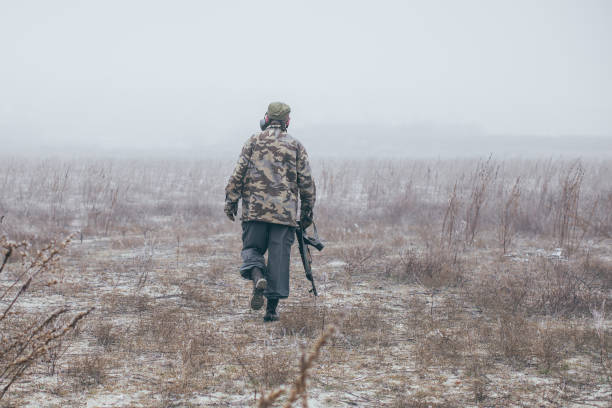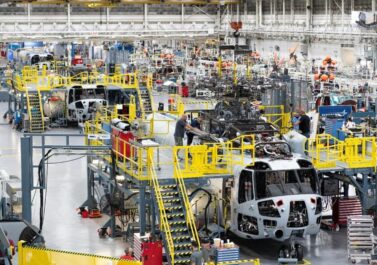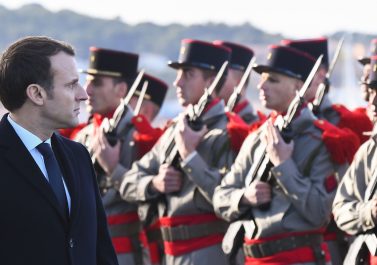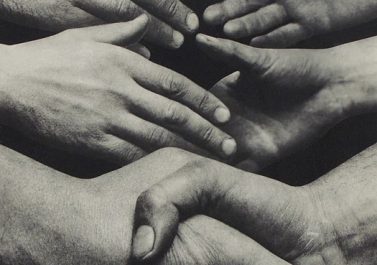
We transcribed and translated the audio recording of this meeting that was organised by comrades of Revolutionare Perspektive in Berlin on the 21st of February 2023. We know little about RFU. Their self-description as Marxist-Leninists suggests that we might have different opinions when it comes to the role of political organisation. Nevertheless, we recognise that this interview shows that, in Ukraine, there is resistance to the war that refuses to support either of the warring camps. It is heartening to read that, “Despite their initial social chauvinist positions, some friends have reconsidered their position since they have been at the front“. Comrades in the area have a difficult task to stand against the tide of the predominant calls to “defend national interests” – whether Russian or Ukrainian. This interview shows that, despite all the challenges, there are comrades who find opportunities to intervene on the basis of Internationalist class struggle.
Introduction by Revolutionaere Perspektive, Berlin
The topic of today’s event is left-wing positions from Ukraine about the war. Last year, on the 24th of February, Russia’s attack on Ukraine started. Since then, thousands of soldiers and civilians have been killed on both sides. This is an imperialist war about power, sphere of influence and resources. Ukraine is of interest to the big powers of Russia, USA and the EU. Nato is arming Ukraine with ever more heavy weaponry and is conducting a proxy war. The position towards the war within the left is contradictory, not only here, but in Ukraine, as well. Today we have invited comrades of the Marxist organisation Revolutionary Workers Front (RFU), which opposes both the Russian war of attack and the Ukrainian government and NATO. They adopt a coherent class position and organise support for the civilian population.
(…)
I now welcome Dimitri and Romano from the RFU. Can you tell us something about your organisation? When were you founded, what are you doing and what are your political goals?
The RFU is a Marxist-Leninist organisation, which formed at the end of 2019 on a Telegram channel of school and university students. In 2020, during the pandemic, the organisation constituted itself in its current form. During 2020 and 2021 we started a YouTube channel and a website, organised many political events and gathered more people around us. Shortly before the war started, we organised a protest in Kharkov relating to collective bargaining disputes, we banned the right-wing from taking part. In 2022 with the war many people became more politicised, which created opportunities to organise educational events and to support the trade unions. We started to support the civilian population, primarily through legal advice for workers and students, but also for soldiers. We see the main task of the group to build a Marxist-Leninist party.
What do you see as the main reason for the current war in Ukraine?
It is an imperialist war that is fought on the territory of Ukraine. It is a war by NATO who delivers weapons to Ukraine. NATO countries want to expand their sphere of influence and Russia does not want to lose influence. There are economic and political reasons. Russia did not want a Nato expansion, but we can see that with the war this expansion has only accelerated with the accession of Scandinavian countries. As far as territories are concerned, the Crimea is of major importance due to the Black Sea navy of the Russian Federation being stationed there. This is why the Crimea was annexed straight away, the other regions in Donbas are of secondary concern, but it explains the drawn out process. Since 2014 the West has delivered weapons to this region, while Russia prepared for war economically by looking for import substitution. If Russia would win the war they would have access to labour power and a big market for resources and territory to accumulate their capital, which would weaken the west. It also becomes apparent that Ukraine is a test-case for the weapons of the west.
What is the situation for the working class, what kind of attacks are they facing on their rights since war started?
Since the war started labour rights are infringed upon constantly, the situation is getting worse. For example, strikes have been banned, wages can be cut without workers having the right to oppose this, they can be dismissed more easily, the trade unions’ ability to do something about it has been curbed. Despite high levels of inflation in Ukraine there are no pay increases. The remnants of the trade unions work in the interest of the employers. There were some protests by seafarers trade unions, but they were quickly stopped. High levels of unemployment is another major problem, the rate is currently at 30%. People are eager to keep or take any job, no matter how bad the conditions are. There is also a high risk of military attack while working. For example, a shopping mall was shelled and because the employees were not allowed to leave in time to hide from the bombing, many of them were hit.
What do you think about positions, for example, from anarchist groups, who speak in favour of defending Ukraine? What are the positions of different segments of the left in Ukraine? Who do you cooperate with?
The RFU is the biggest Marxist-Leninist group. There are other organisations, such as Social Movement, that take on social chauvinist positions, cooperate with the right-wing and support the Ukrainian government. We don’t have many comrades in Ukraine, but cooperate with people in the rest of Europe. The anarchists adopted a strange position, they supported the Ukrainian government from the start of the war and by taking sides they betrayed the working class. It also shows that the anarchists in Ukraine are not independent politically. Despite their initial social chauvinist positions, some friends have reconsidered their position since they have been at the front; we hope to be able to cooperate with them in the future.
What possibilities do you see to stop the war or for the war to end?
That’s a difficult question, it is difficult to tell who will win the war. The Ukrainian army has won a few battles against a large army that they are facing, for example in Kherson. But the Russian army will try and regain the lost territory. The Ukraine army will continue to defend itself as long as weapon supplies continue. Ukraine is completely dependent on the west in that regard. As long as people fight and die in Ukraine, the war will continue. It looks like a war of attrition, based on whoever’s resources last longest, and a current stalemate.
Are there desertions of Ukrainian soldiers and to what extent?
There are many desertions, because the situation at the front is awful, the losses are high, despite the support from the west. In the end there are not that many who want to die for a state that is not doing anything for the working population, but rather attacks their conditions. Members of parliament and students who study foreign languages are exempt from conscription into the army, though they are still banned from leaving the country. Many people try to forge documents and try to prove that they are volunteers or carers, and therefore exempt from serving in the army. Many people try to leave the country on foot. Zelensky says that everyone is free to leave the country, but that’s not the truth. We have acquaintances who served at the front, amongst others an officer in Donbas, who said that it is relatively easy to desert, because it is difficult to trace. Obviously the government doesn’t talk about that. Within the population the motivation to fight decreases rapidly, also in the light of a new law that heavily punishes desertion or any form of refusal to follow orders from military superiors. Courts are now prohibited from giving lighter sentences.
How do you understand the so-called peoples’ republics in Donbas, which declared independence after Maidan 2014 and who have now been annexed?
Some people on the left think that the republics in Donbas are somehow progressive, in the interest of the population, but that is not the case. These republics are very pro-Russian, they are puppets of the Russian Federation. They were founded in reaction to the Maidan, but it is wrong to call them peoples’ republics, as their formation has little to do with the people, they are just used by Russia. It’s another market for them for cheap labour. Since the republics have been annexed Russia pumps investments into them. But Russia also uses them as laboratories for their war actions. Initially, when the republics were founded, left-wing people were involved, but the governments of the republics try everything to stop progressive ideas from spreading and act in the interest of Russian imperialism. True leftists oppose the economic foundation and political positions of imperialists and would not cooperate with them. Some of the left-wing activists in the republics ended up in prison, some disappeared, some were killed. The Communist Party was banned. It shows that the republics act in a reactionary way. The Russian state says that only the Russian population lives in Donbas, that is Putin’s ideology, that Ukraine is not an independent nation. But it is wrong to say that there are no Ukrainians in Donbas. This region is ethnically diverse, with big shares of both Russians and Ukrainians, while the region is largely Russian speaking. Statistically, in 2001 65% of the population in Donbas were Ukrainians. Since the puppet republics were installed the Ukrainian language was removed officially, from the schools, literature has been removed. There is no independence in the republics, the government takes on a chauvinist position and works in the hands of Russian oligarchs.
We will now have questions from the audience. –
The work the comrades are doing is obviously very dangerous, given their positions. Putin talks about de-nazification, or asked differently, how do you see the influence of the far-right within the Ukrainian state?
Putin said that with the war he wants to eradicate nationalism in Ukraine, but it shows that things only got worse, the anti-Russian positions in the population got strengthened. Also the government has changed. Before the war it was a normal bourgeois democracy, in the sense of different political parties, but once the war started, all unwanted people, who don’t support the official line of the government, were removed from office. A one-party system has formed around Zelensky that represents the new nationalism. Nationalist organisations have become stronger since war started, in particular military right-wing organisations like Azov. The good thing is, if one can say this, that they destroy themselves at the front. Their alliance with the state is rather unstable, because it is Zelensky who gains in real power. It is possible that there will be more tensions in case the right-wing gains too much influence and Zelensky will try to prevent that. With the war, more people radicalised towards the right-wing, but we can assume that this won’t last for long. The mass of people are not ideologically right-wing. The support of the right-wing is more of a cultural phenomena, based on fear during the war.
As communists we say that workers have to turn the guns towards their own rulers. Some parts of the communist movement, who are supporting Russia in the war with Nato, accuse us of left-wing radicalism. I would like to know what for you, as a young organisation, ‘turning the guns’ means in the current situation. What are your challenges? Are you confronted with repression?
At the moment the masses are not able to engage in political work. There are only a few opportunities to widen the scope of left-wing positions. We confront possible repression both from the state in Ukraine and Russia. We have to work undercover. If the intelligence service knew our personal identity we might not be killed, although that is also possible, but would lose our freedom. The organisation Social Movement still acts openly, but is observed by the intelligence service. It is not possible to turn the current situation into a revolutionary situation, but we try our best to agitate within the population, in particular amongst soldiers. On the frontline we can do this only to a limited extent, because of the major risk, but it is possible due to contacts with friends who are soldiers and officers. The brutal conditions themselves change the opinion of many soldiers.
I first want to say that it is great that your organisation exists, an organisation that opposes both Nato and Russian imperialism in Ukraine. That is necessary to build a global movement against the war. But what do you expect from us, in a western imperialist nation? To just say that we don’t cooperate with the German or the Russian state would just amount to political passivity. Leninists would have to defend the semi-colony against the aggression and at the same time, in a war between two imperialist camps, support the defeat of their own side.
The RFU wants to cooperate with other comrades abroad, some of our comrades live in Germany, they also need support. We want to broaden our work with refugees from Ukraine who are in Europe, we would need help with that. But primarily Marxists need to build struggle organisations that attack the bourgeoisie in their own country and work together with other organisations internationally.
How do you see the relation between the Ukrainian state’s attempt to ‘de-communise’ the country after the end of the Soviet Union and the current efforts to ‘de-Russify’ the nation? In a way this is an attempt to turn a class issue into an ethnic one.
The current government denies the common history of Russia and Ukraine, that both countries were part of the same nation. This tendency got worse since 2014 and this narrative is necessary to maintain the level of hysteria that prevails in Ukraine and to make people fight for the Ukrainian state till the bitter end. This manifests in many ways, for example, many streets or monuments are renamed in order to rewrite history. You face issues with the police if you are seen with Soviet or communist literature.
Is there willingness amongst the population in Ukraine to give up the eastern parts of the country in order to end the war? Can people voice such positions, can it be discussed publicly?
We don’t come across this position; if it exists, then only amongst a minority. Most people want to continue the war till all territory is won back. There are only a few positions that argue for peace.
Could you say more about the organisation Social Movement, as they are paraded by both the reformist and the radical left in Germany – and the Rosa Luxemburg Foundation uses them in order to get the left in Germany to adhere to Nato positions.
Even before the war the organisation did not follow a revolutionary strategy, they just said vaguely that they support the interests of the working population. They mainly provide legal advice. They are known because they cooperate with left organisations abroad. These are normally not Marxist-Leninist organisations. They say that the Ukraine government has to be supported because they fight a war of national liberation. Currently they don’t offer that much support for local workers, we do more work in that regard.
Do you have contacts with groups in Russia, which ones are close to you politically? And where in Ukraine are you active, if you can tell us, given the security concerns.
We have contacts, mainly with the Russian Workers Front. There are many left organisations in Russia, but only few with good positions, who you can collaborate with. We have comrades all over Ukraine and groups in all bigger cities, apart from the annexed areas.
Back to the question of ‘turning the guns’, what are your concrete steps towards building a party for a revolutionary situation?
We try to relate to the growing discontent amongst the population and the soldiers, who feel that they are sacrificed. We need the support from our Russian comrades in this. Otherwise, we continue our educational work and try to help workers create independent unions. We hope this work will help us to form a communist party. We focus on our offline work, so that we will be able to support workers and their strikes and protests.
Do you see the chance to force the Ukrainian government to enter into peace negotiations by stopping arms supply from the west?
We don’t think that the Ukrainian government will enter into negotiations. The best thing you can do is continue your struggle against the government in Ukraine. Other international organisations who could stop arms supply are currently too weak.



